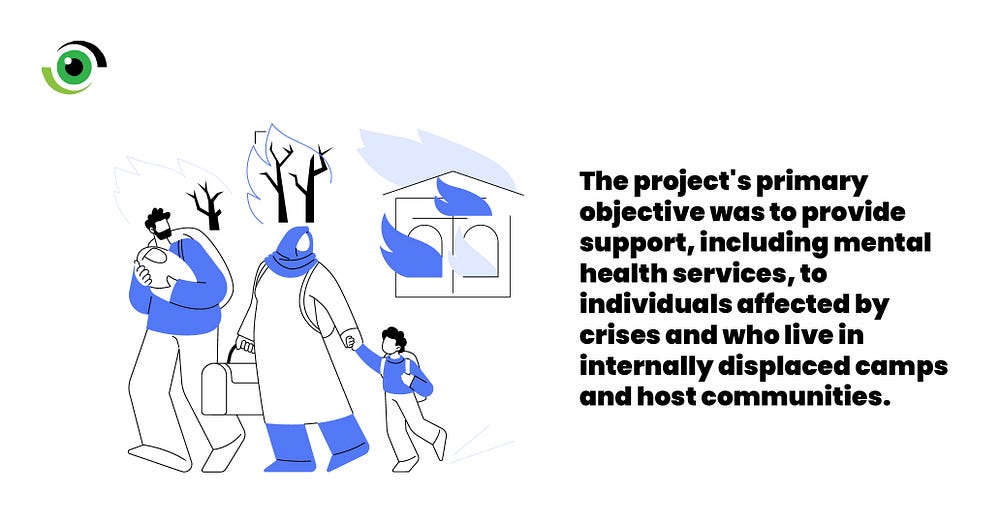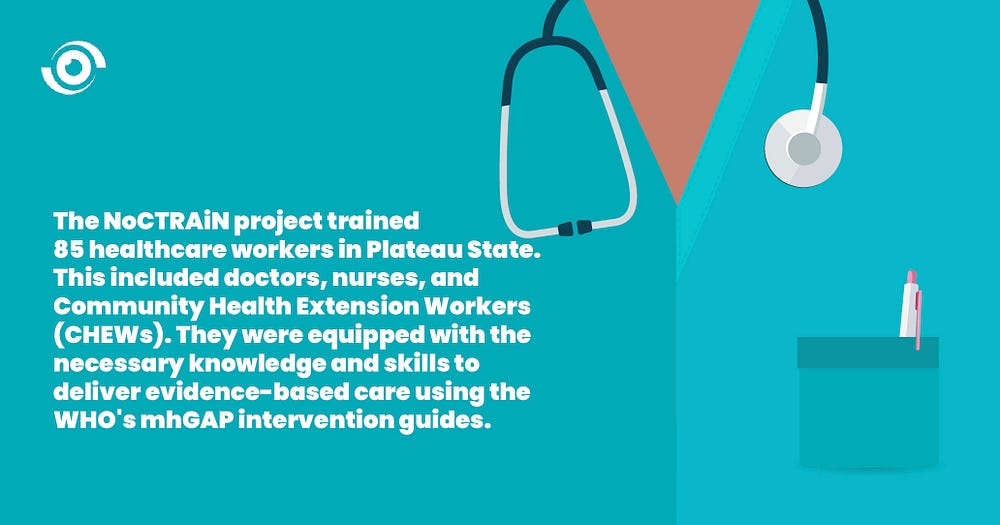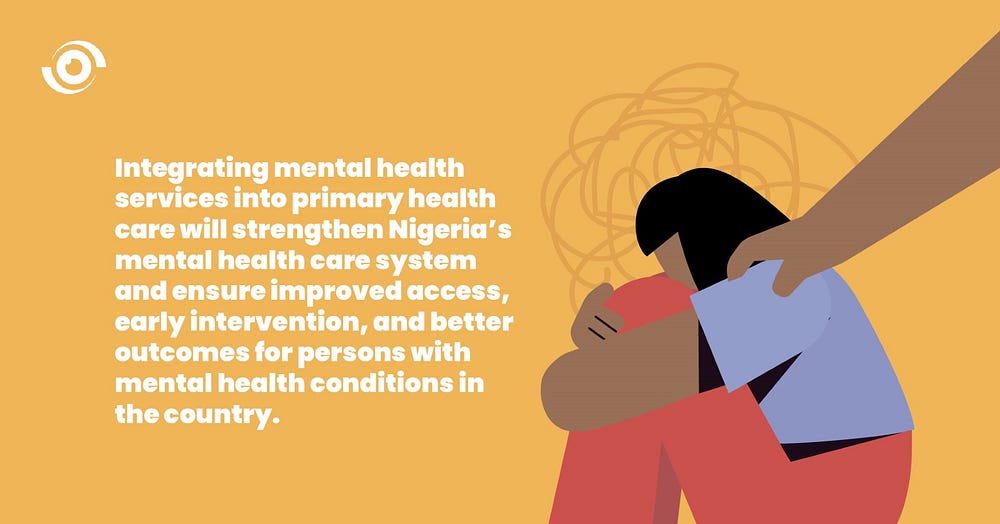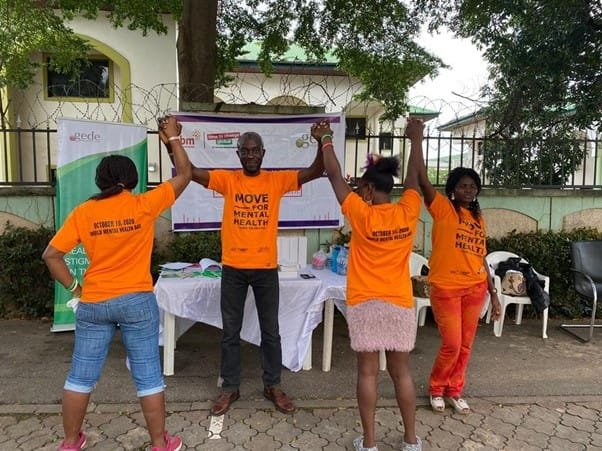[ad_1]
By Patience Adejo and Saidat Azeez Saleh (Lead Writers)
Plateau State, located in North Central Nigeria, is a region known for its vibrant culture and thriving communities. However, a series of farmer-herder clashes have left affected communities in some parts of the state grappling with the trauma of loss and displacement and the challenge of rebuilding their lives in unfamiliar surroundings. As a result, mental health issues have emerged as a pressing concern as survivors navigate the emotional and psychological toll of the conflict.
This unfortunate reality resonates with the experiences of individuals in crisis-ridden regions, where the loss of lives, property, and shelter is accompanied by a significant burden of mental health needs among internally displaced persons (IDPs) and communities, as revealed by research conducted in Borno State following the Boko Haram insurgency.
The NoCTRAiN Project
The impact of conflict and displacement on mental health is significant and multifaceted, and several organisations have been providing mental health and psychosocial support services in IDP camps and affected communities. One such initiative is the North Central Transitional Aid in Nigeria (NoCTRAiN) project which is focused on providing assistance and support to individuals and communities in the North Central region of Nigeria who have been affected by crisis and conflict. One key component of the NoCTRAiN Project is the provision of mental health services.
Gede Foundation, a not-for-profit mental health organisation, implemented the NoCTRAiN Project in several Primary Health Centers (PHCs) across five local government areas (LGAs) in Plateau State: Riyom, Barkin Ladi, Bassa, Bokkos and Mangu LGA. The project, which started in 2019, was funded by the Christian Blind Mission (CBM).

The project’s primary objective was to provide support, including mental health services, to individuals affected by crises and who live in internally displaced camps and host communities. This was achieved by building the capacity of local healthcare providers and community workers to deliver essential mental health services.
According to Mr Godwin Etim, Managing Director, Gede Foundation, “We successfully trained 85 healthcare workers, including doctors, nurses, and Community Health Extension Workers (CHEWs), in Plateau state. These healthcare professionals are now equipped with the knowledge and skills to provide evidence-based care using WHO’s mhGAP intervention guides.” Through this evidence-based tool, non-mental health professionals were trained to respond effectively to mental health challenges within their communities. This approach equipped health workers with the necessary knowledge and skill to identify mental health issues, provide basic counselling, and refer individuals to specialised care when needed.

Discussing the measures implemented to ensure that individuals in need of mental health support were reached and their needs met, Mr Etim said, “When we identify a community with displaced people, we begin active sensitisation on mental health, and we encourage them to seek help at the designated health facilities if they encounter any mental health challenges. At the facility, we made available medications for conditions such as anxiety, depression, and more. These medications are supplied to facilities where clients can access them at subsidised rates.”
Miriam’s story
Mr. Machak Tenti, a community mobiliser in Bokkos LGA, who was trained by the Foundation, recounted the story of Mariam, a resilient 30-year-old survivor of one of the farmer-herder clashes. Mariam witnessed the brutal killing of her entire family and was herself subjected to the trauma of sexual assault. Despite the option of seeking refuge and support at an IDP camp, she chose to remain in her home, where the horrific events occurred, reliving the trauma. However, after being notified of her condition, Gede Foundation stepped in and provided the necessary mental health support. With significant improvement in her mental well-being, Mariam has now started reconnecting with her peers in the community. Her story is just one among the 2,037 individuals who have benefited from the mental health support provided by the NoCTRAiN project.
Mariam, alongside many other beneficiaries, is part of a self-help group led by community volunteers. It is a platform that enables beneficiaries to discuss and share their experiences. “Sharing these experiences helps to encourage and support one another. It also allows us to reach out to those who may be unaware of the available services, ensuring that individuals with similar conditions are informed about accessing medications”, said Tenti. He added that, for people with disabilities which prevent them from accessing care, dedicated volunteers regularly check up on them to offer support and ensure they receive the required care.
However, the conflict in the region created a volatile and insecure environment, sometimes making it difficult to reach the communities. Mr Etim cited this as a significant challenge they encountered while implementing the project. “Task shifting is also a significant issue due to the absence of permanent professional health personnel at the PHC, necessitating reliance on community volunteers. This presents challenges when integrating the mental health project into an already overwhelmed system with limited staff capacity,” he added.

Ensuring sustainability
In a bid to address the long-term nature of mental health care, the NoCTRAiN project established a drug-revolving fund (DRF) system where medication purchases at healthcare facilities were collected and transferred to the Gede Foundation. These funds were subsequently used to replenish the drug supply at the facilities, ensuring consistent availability of medications. This approach effectively ensured that future patients would continue to benefit from the intervention without interruptions. When the project ended in May 2023, management of the DRF was transferred to the primary healthcare centres, empowering them to sustain the programme.
While initiatives like the NoCTRAiN project are bridging a critical gap, they are often short-term. Integrating mental health services into primary health care will strengthen Nigeria’s mental health care system and ensure improved access, early intervention, and better outcomes for persons with mental health conditions in the country. The recent enactment of the Mental Health Bill provides a perfect opportunity to implement this, particularly as it has a strong community-based focus and aims to ‘ensure a better quality of life through access to integrated, well planned, effectively organised and efficiently delivered mental healthcare services in Nigeria’.
[ad_2]
Source link



